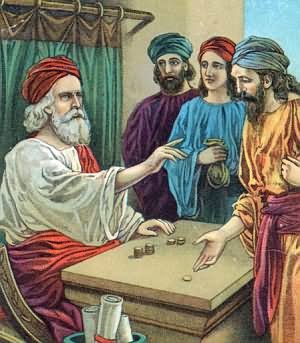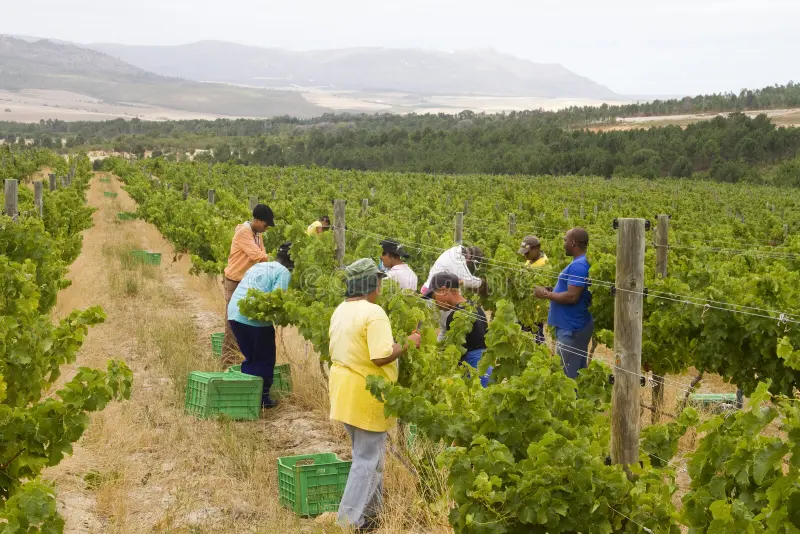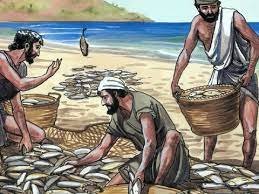Today, I want to reflect on this parable from Mark 4: 26-29.
Firstly this is Mark’s only unique parable. The underlying teaching is understanding the Kingdom of God. The question that I ask myself is how do I understand the Kingdom of God? It means the reign of God. It also means the day when God’s perfect will, will be done as perfectly in earth as it is in heaven. That is the goal of God for the whole universe.
This parable is short but it is filled with loaded with heavenly truths. What has this parable taught me? It has taught me of
(i) The helplessness of man. The farmer does not make the seed grow. In fact, he does not even understand how it grows. It seems to have a secret of life and of growth within itself. No man has ever possessed the secret of life; no man has ever created anything in the full sense of the term. Man can discover things; he can rearrange them; he can develop them; but he cannot create them from scratch, from nothing, from thin air. I cannot create the Kingdom of God; the Kingdom is God’s. It is true that I can frustrate it and hinder it. Alternatively I can aid it in coming more fully and more speedily. But I should not forget that behind all things is God and the power and will of God.
(ii) It teaches me about the Kingdom. Jesus uses parables to describe the coming of the Kingdom of God. So, delving a little further it teaches me about nature.
(a) Nature’s growth cannot be seen. If I see a plant every day, I cannot see its growth taking place. Similarly, when my child was growing, I could not see its growth every day. It is only when I see it, and then see it again after an interval of time that I begin to notice the difference. It is similar to the Kingdom of God. There is not the slightest doubt that the Kingdom is on the way if I compare, not today with yesterday, but maybe a decade ago with the current decade or even a century. Because the Kingdom is on the way, the growth of the Kingdom may, like that of the plant or child maybe imperceptible from day to day; but over the years it is plain for all to see.
(b) Nature’s growth is constant. Night and day, while man sleeps, growth goes on. There is nothing spasmodic about God. In comparison human effort and human goodness is spasmodic. One day I take one step forward; the next day I take two steps back. But the work of God goes on quietly; unceasingly God unfolds his plan. Slowly but surely His plan is revealed and fulfilled.
(c) Nature’s growth is inevitable. There is nothing so powerful as growth. I have seen a tree splitting a concrete pavement with the power of its growth. Similarly, nothing can stop growth. It is so with the Kingdom. However much I rebel against God, I may disobey God, God’s work goes on; and nothing in the end can stop the purposes of God.
(iii) It teaches me that there is a consummation. There is a day when the harvest comes. Inevitably when the harvest comes two things happen–which are opposite sides of the same thing. The good fruit is gathered in, and the weeds and the tares are destroyed. Harvest and judgment go hand in hand.
(a) It is a summons to patience. I’m a creature of the moment and inevitably think in terms of the moment, on the other hand God has all eternity to work. The Psalmist puts it beautifully as “A thousand years in thy sight are but as yesterday when it is past or as a watch in the night.” (Ps.90:4.) Instead of my petulant, fretful, irritable human hastiness I should cultivate in my soul the patience which is being taught to me and that is to wait on God.
(b) It is a summons to hope. I’m living today in an atmosphere of despair. People despair of the church; look around at the uncertainty in world; they look with shuddering dread on the future. Look at the wars around which is another sure sign of despair. What about natural calamities, it is surely a cause of despair. If God is the God, I know Him to be there can be no room for pessimism. I may be remorse, have my regret; there may be penitence, contrition, heart-searching, the realization of failure and of sin; but there can never be despair. I need to look to the Lord from where my hope comes.
(c) It is a summons to preparedness. If there comes the consummation, I must be ready for it. I need to be working towards it and it is never too late to prepare for it. I cannot begin preparation when it is upon me, it will be too late. I need to be literally ready and prepared to meet my God.
In conclusion, if I live in patience which cannot be defeated, in hope which cannot despaired, and in preparation which sees life in the light of eternity, I shall, by His grace, be ready for his consummation when it comes.



